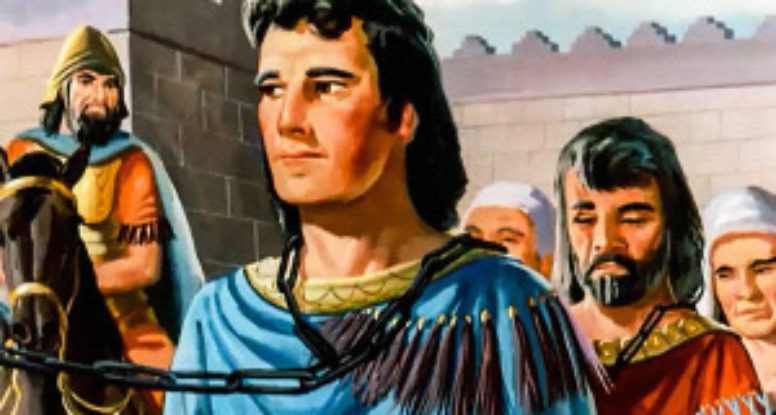
When Bad Things Happen to Good People
To Daniel and his 3 friends, it would seem that they were born at the wrong time in history. The mistakes made by their predecessors were now reaping its rewards on Daniel’s generation. King Jehoiakim had been forewarned and his choice to ignore those warnings led to Daniel and his friends being forcibly removed from home, family and land.
Daniel lived through the siege of Jerusalem, saw his Temple desecrated and his God mocked. He may have seen his family die and his house destroyed. As one who was counted among ‘the nobles’ (Dan 1:3) he must have had a comfortable life in Jerusalem before it all came crashing down. He and the other exiles suffered major trauma – psychological and probably physical as well. Enough to make anyone angry, bitter, jaded.
For me, it would be easy to blame those responsible – be angry at the government and those in charge. It would be easy to consider God had abandoned me. Especially if I had seen the Temple ransacked and God’s own city laid waste. ‘How could God have let this happen?’ or ‘does He really care about us?’ or ‘why doesn’t God do something?’.
It would also be easy to turn to trust in my own abilities with all of God’s ‘incompetence’ showing. Daniel was chosen for his looks, intellect and usefulness. It would be too easy to see this as his own doing – working out his own salvation and making himself the god of his life. These attributes are still seen as means to lift oneself up to a higher station and we see success as the result of our hard work, our talent, our doing.
In a place that stripped them of their cultural identity (giving them new names, teaching new ideas and languages, living in a foreign environment) it would be easy to lose one’s personal identity. But these four remain firm (and are referred to by their Hebrew names for this passage). I also infer from the response of their overseer that no one else had asked for dietary considerations. It would seem that most gave in to the new cultural norm.
But there is something incredible about this story. Not just how these four young men rise above it all. I think it is more subtle than that. It is how little their suffering is dwelt on. Their apparent hardship is only mentioned as a way to briefly set the scene and as soon as it is mentioned, the story moves on. Daniel’s mission takes over the narrative.
In my day to day life I meet any number of people who are undergoing hardship. For those who rise above it, there is a common theme of ‘purpose’ and ‘identity’. It is so easy to lose identity and purpose after massive change.
Who am I when all I thought I had is stripped away? What is my purpose when all I had been doing is destroyed?
But now, God’s Message,
the God who made you in the first place, Jacob,
the One who got you started, Israel:
“Don’t be afraid, I’ve redeemed you.
I’ve called your name. You’re mine.”
Is 43:1
‘He’s already made it plain how to live, what to do, what God is looking for in men and women. It’s quite simple: Do what is fair and just to your neighbour, be compassionate and loyal in your love. And don’t take yourself too seriously – take God seriously.’ Micah 6:8
